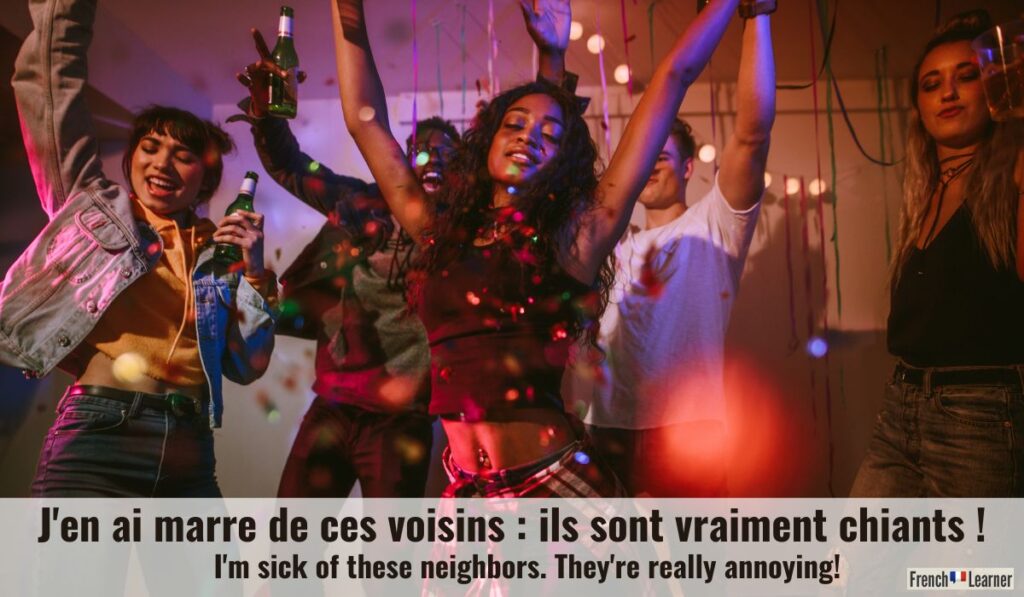In this lesson we’ll examine a slang adjective that almost never appears in the textbooks: chiant. Translations for chiant include “really annoying/irritating”, “a pain in the ass” and “really boring”. Use caution with this adjective! It is considered vulgar and should only be used with friends.
chiant
annoying/pain in the ass

Chiant Meaning & Translation
I learned the adjective chiant orally when I was an exchange student in a French lycée (high school). As mentioned this word is extremely informal, and you’d generally only hear it in spoken French.
Chiant is the present participle of the verb chier (to crap). Given that chiant is an adjective, it has masculine and feminine forms:
chiant / chiante
In its most simplistic form, here’s how to use chiant:
Oh, what a pain, it’s/that’s annoying!
If somebody is really bothering you, you can definitly describe them with the word chiant. The following example sentence uses the word mec (guy).
Il m’enèrve ce mec. Il est trop chiant !
This guy is bothering me. He’s really annoying (a pain in the ass)!
The next example sentence includes the expression en avoir marre (to be fed up, sick of).
J’en ai marre de ces voisins : ils sont vraiment chiants !
I’m sick of these neighbors. They’re really annoying (a pain in the ass)!
In the following example sentence, the demonstrative adjective ce can traslate roughly to “this” or “that”.
Il est chiant ce chien. Il n’arrête pas d’aboyer.
This/that dog is annoying (a pain in the ass). He doesn’t stop barking.
In our final example sentence, chiant translates to “very boring” or “very dull”.
Ce film est vraiment chiant. Tu ne vas pas l’aimer.
This movie is very boring (dull). You’re not going to like it.


